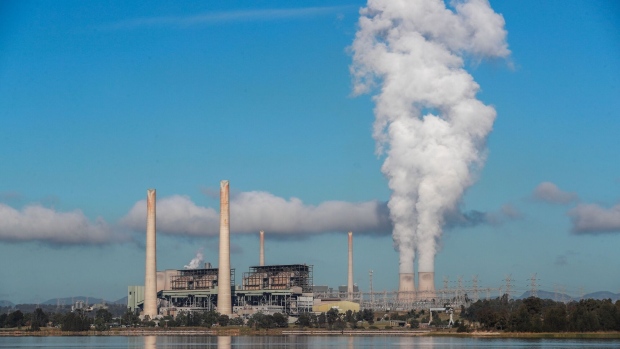Dec 18, 2023
Australia Adviser Urges Improved Reporting of Methane Emissions
, Bloomberg News

(Bloomberg) -- Australia needs to improve the accuracy of fossil fuel producers’ reporting on greenhouse gas emissions, especially on methane releases from open-cut coal mines, a review of the nation’s climate reporting systems has found.
Targeted changes are needed to ensure the National Greenhouse and Energy Reporting Act and the Australian Carbon Credit Unit system “remain fit-for-purpose” as the nation seeks to meet 2030 and 2050 climate targets, according to two reports by the Climate Change Authority, an independent body that advises the government.
“Over the past five years, developments in satellite technologies and inverse modeling techniques have resulted in a new source of data to estimate fugitive methane emissions from individual facilities,” the CCA said. “Some of these satellite observations have raised questions about the accuracy of estimated fugitive methane emissions from coal mining and oil and gas operations in Australia.”
Concern over methane emissions from Australia’s open cut coal mines started after researchers with the SRON Netherlands Institute for Space Research used satellite observations to study plumes of the greenhouse gas near Glencore’s Hail Creek coal mine in 2018 and 2019.
In a peer-reviewed paper published in 2021, they estimated the mine spewed so much methane a year that it had the equivalent short-term climate impact as the the annual emissions from between 3.2 million and 5 million US cars US cars. The study suggested the mine’s true contribution to global warming is significantly underestimated in official data.
Halting releases of methane, which is the primary component of natural gas but is also released during coal and oil production, has taken on greater urgency as governments race to find the cheapest and fastest ways to reduce global temperatures. Methane has more than 80 times the warming power of carbon dioxide during its first two decades in the atmosphere and is responsible for about 30% of the Earth’s warming.
Data from satellites and aerial surveys suggest methane emissions from fossil fuels are significantly under-reported around the world. Observed releases from global oil and gas operations are 30% higher than what countries estimate in reports to the United Nations, according to a report published in Nature Communications in August.
The Institute for Energy Economics and Financial Analysis, a think tank, in July pointed to “gross under-reporting” of methane leaks in Australia and said many large industrial facilities should double their rates of decarbonization.
“The CCA review reads as a scathing rebuke of Australia’s existing methane monitoring system,” said Chris Wright, a climate strategy adviser at energy think tank Ember. “The report outlines the urgency of immediately phasing out 20th century estimates and ushering in a 21st Century-ready measurement and transparency framework.”
(Updates with details throughout.)
©2023 Bloomberg L.P.





